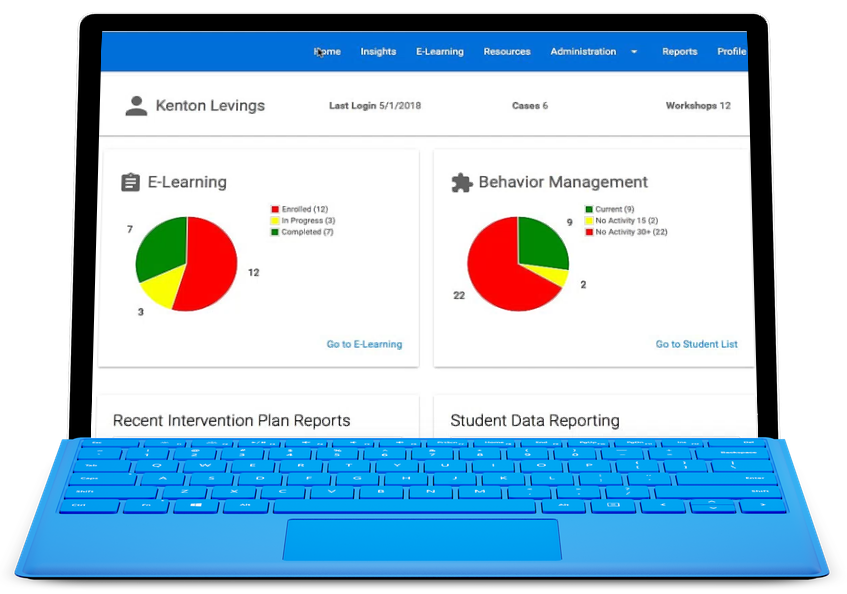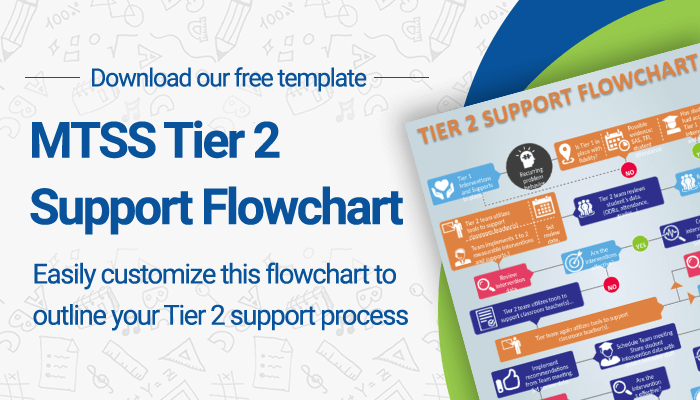Even the best teachers can struggle with controlling their classrooms. This is especially true if they must deal with difficult student behavior on a regular basis.
A teacher can plan a fun, creative lesson, but without a behavior management plan in place, it can go downhill very quickly. Managing a classroom well is the first step to successful teaching.
If you play a role in supporting teachers and students in your school or district, you know many teachers need help with classroom management. Here are ten tips you can share to help them have a more successful school year.
1. Develop Relationships
First and foremost, teachers must nurture relationships with their students. Connection and trust are everything when it comes to authentic learning. Without it, teachers are simply spinning their wheels in the classroom.
Encourage your teachers to view their classes as a family. Students should feel secure and comfortable to be themselves, ask questions, and approach the teacher for help.
When teachers allow their students to get to know them, students see them as a real person rather than just another teacher. Encourage teachers to take an interest in the lives of their students and use those interests to connect with them in a positive way.
2. Have Clear Expectations
It’s important for teachers to let students know they have high expectations of them from the very first day. And teachers should be clear about what they mean by this.
Students may think high expectations means they need to know all the answers or make A’s on every assignment. Teachers should explain that they expect students to follow their rules, do their absolute best, and always ask questions.
Students need to understand what their teacher expects of them from the moment they walk in until the end of class. Students crave structure, and they look to their teachers to provide it.
When students have a clear understanding of what the teacher wants from them, they are much more likely to follow through.
3. Be Prepared
A teacher without a plan is at the mercy of her students. Students can tell in an instant if a teacher is prepared or not. If teachers hope to see real learning take place, it’s a good idea to over-prepare.
If your school doesn’t require lesson plans, encourage teachers to make them for themselves anyway. They should begin each day with a clear plan of what they expect from start to finish.
A good lesson plan helps keep students learning, engaging, and collaborating from bell to bell. This may seem a bit overwhelming at first, especially to new teachers, but a well-planned day is a lifesaver for a teacher.
4. Develop Routines
A teacher’s expectations and procedures should be clear. When students follow the same routine each day, it becomes second nature for them to do so.
If teachers have a plan in place where students come in and complete bell work or write in journals, they should stick with that every day. Students with behavior issues need this structure and predictability in their day.
Consistency is key. Encourage teachers to develop consistent rules for asking questions, moving around the room, turning in work, going to the restroom, etc. Without consistent routines in place, there is a good chance students will develop their own routine. And that’s never a good idea.
5. Correct With Care
Most students who misbehave are seeking attention. Although teachers can’t allow the misbehavior to continue, it’s important to correct it at the right time and in the right way.
Yelling at a student in class will disrupt the entire class and make the teacher look out of control. When a student first misbehaves, the teacher should watch and see if the behavior continues.
If the behavior continues, teachers can use a silent signal directed at that particular student. If this doesn’t work, the teacher can whisper what they expect and the consequence of failing to do it.
For most students, these tactics work, and teachers can carry on with the lesson. If not, the teacher should learn to administer the appropriate consequence without raising their voice or shaming the student.
Some teachers will try to hide the fact they’re having problems managing their classrooms. Make sure your teachers know it’s okay to reach out for support when they’re struggling with difficult behaviors.
Stress that seeking help does not indicate weakness as a teacher. Instead, reaching out for support shows they want to improve and are willing to learn new techniques and strategies to make it happen.
6. Celebrate Their Work
Encourage teachers to notice when students do well or improve. They should call attention to students’ successes and celebrate the good things they are doing.
Students want to know their teachers see them and care about them as individuals. It’s always a good idea for teachers to offer rewards for good behavior and hard work in the classroom.
When students know teachers value their effort, they’re more likely to try. Knowing their teacher will acknowledge them for doing their best is a huge incentive for struggling students.
7. Talk to Parents
It’s hard to find time for everything, and many teachers let this one slide. But stress to your teachers that staying in contact with parents is worth every second of effort.
It’s true that some parents don’t care and may even blame the teacher for their child’s behavior. But this is the exception.
Most parents do care. Most parents want teachers to call them. If a teacher wants to make a parent’s day, tell them something positive about their child.
When a child knows their teacher contacts parents on a regular basis, it does make a difference in their behavior.
Talking to parents can offer insight into what a child is experiencing outside of the classroom. This can help teachers understand students better and build a bridge to their parents as well.
8. Keep Lessons Short and Transitional
A long lecture is a good way to lose students’ attention. Encourage teachers to keep their lessons short and to the point.
Suggest breaking lessons into 2 to 3 sections and include transitions such as teaching, asking questions, computer work, journaling, or collaborative groups.
The goal is to keep students’ brains engaged and their bodies moving quickly through transitions. It’s important to make transitions a part of normal classroom procedures.
Teachers should revisit what they expect students to do each time. When students know exactly what their teacher wants them to do and how they should do it, they are more likely to comply.
9. Be Consistent
The first few weeks of school are critical for establishing routines. Encourage teachers to review their expectations every day, so students know what to do without question.
The teacher sets the tone for the year during the first few weeks. If they lose them in the beginning, it makes discipline an uphill battle.
Establishing rules and routines early is the key. But maintaining consistency is just as important.
Remind teachers they are in charge. Whatever behaviors they tolerate will continue.
10. Never Give Up
Many new teachers leave the profession because they do not receive the support they need as they navigate managing their classrooms. This is tragic and a loss of valuable talent.
Make sure your teachers know they have the support they need to be successful.
Remind teachers that good classroom management doesn’t happen overnight. It takes time and lots of practice. Once they find a system that works for them, it does get easier over time.
There will always be students who present a challenge. The key is for teachers to keep trying to reach those students who need them most.
Steps to Better Classroom Management
If you’re looking for ways to support teachers and students in your school or district, we would love to talk with you.
We’d love to share our practical, proven solutions to classroom management issues. Contact us today to learn more.



